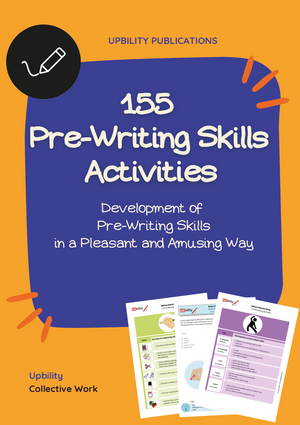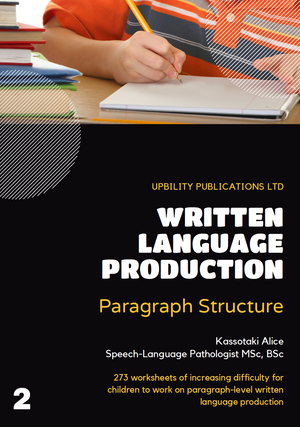
Echolalia and Autism: meaningful repetitions
Echolalia, often seen as simple repetition of sounds or words, is deeply intertwined with the development and communication pathways of many autistic children. This form of language, while sometimes overlooked as meaningless imitation, has profound significance. Deeper research and understanding of echolalia can help caregivers, teachers, and peers connect more deeply with autistic individuals.
What is echolalia?
Echolalia is the act of repeating sounds, words or phrases that are audible and is a natural part of children's language development. It is manifested in two ways: immediate echolalia (repetition as soon as something is heard) and delayed echolalia (repetition after a time gap) (Rybak, 2019).
Echolalia in autistic development

While echolalia occurs at various developmental stages and conditions, it is particularly prevalent in autistic children. In fact, Tager-Flusberg & Calkins (1990) suggested that up to 75% of verbal autistic individuals exhibit echolalia in their communication.
Why echolalia is more than just repetition
A form of communication: Even if an autistic child cannot produce spontaneous language, echolalia provides a bridge for engagement. When an autistic child repeats a question instead of answering directly, he or she may process the information, indicate that he or she has heard the question, or use the repetition as a precursor to a response (Prizant & Duchan, 1981).
Language learning: Echolalia provides a scaffold from which language skills can be built. The repetition of phrases and sentences helps autistic children understand the syntax, patterns, and rhythms of language, serving as a rehearsal for future independent speech (Stribling, Rae, & Dickerson, 2007).
Self-understanding: Familiar phrases and sounds can be comforting. Autistic children, who may experience sensory overload, can use echolalia as a grounding mechanism, echoing familiar phrases to calm themselves (Woynaroski et al., 2016).
Scenario: A variant of echolalia, scripting involves repetition of dialogue from TV shows, movies or books. Autistic children may use scripts to convey emotions, respond to situations, or navigate social interactions (Stiegler, 2015).
In-depth look at the topic: The functions of echolalia
Processing and understanding: Autistic children may use echolalia to gain time and process what is being said. It is not just a delay - it is an active engagement and understanding of language in their own unique way (Tager-Flusberg, 1981).
Social interaction: for some, echolalia serves as a tool for maintaining a social interaction. By repeating phrases, they can remain active in a conversation even if they cannot produce spontaneous language (Prizant & Duchan, 1981).
Expressive language: although it may seem counterintuitive, repeating a phrase that has already been heard can be an innovative way to communicate desires, feelings or needs. For example, an autistic child may repeat a line from a show where a character is thirsty to indicate that he or she wants water (Stiegler, 2015).
Memory aid: Delayed echolalia can serve as a tool for memory. Repetition of information, such as instructions or a program, can aid in reinforcement and memory (Prizant & Duchan, 1981).
You may find interesting the following articles:
- Creating Routines for Teens with Autism
- Mood Disorders and Teenage Girls
- The Importance of Play Activities for Children with Autism
- Bullying and Autism: How to Help Your Child
- 10 Ways to Teach Your Child the Skills to Prevent Sexual Abuse
- Teaching Empathy Skills to Children With Autism
Understanding the role of echolalia in autism
 Recognizing the value and functions of echolalia can transform interactions with autistic individuals:
Recognizing the value and functions of echolalia can transform interactions with autistic individuals:
Patience: Understanding that echolalia is an essential process encourages patience, giving the individual ample time to process and respond.
Interactive conversations: Rather than discouraging echolalia, one can use it as an engagement tool. For example, if a question echoes back, one can rephrase or elaborate on it to guide the conversation forward (Prizant & Duchan, 1981).
Supportive environment: creating an environment where autistic individuals feel safe to use echolalia without criticism can boost their confidence and reduce anxiety, promoting better communication over time (Woynaroski et al., 2016).
Conclusion
Far from being an arbitrary repetition, echolalia is an essential, multifunctional tool, especially for autistic individuals. By embracing and understanding it, we open doors to richer, deeper connections with autistic children and adults.
Understanding the diverse world of autistic individuals requires continuous learning. Echolalia, with its layers and complexities, offers a small but important glimpse into this world.
Original content from the Upbility writing team. Reproduction of this article, in whole or in part, without credit to the publisher is prohibited.
Suggested Books on Special education and autism:




